
Denver’s dining scene took center stage last night at State of the Plate, hosted by BusinessDen at the Halcyon Hotel in Cherry Creek and moderated by Thomas Gounley & led by Liz Thurston.
The panel featured Frank Bonnano, Sean Huggard, Tommy Lee, Mary Nguyen, Juan Padró and Dana Rodriguez
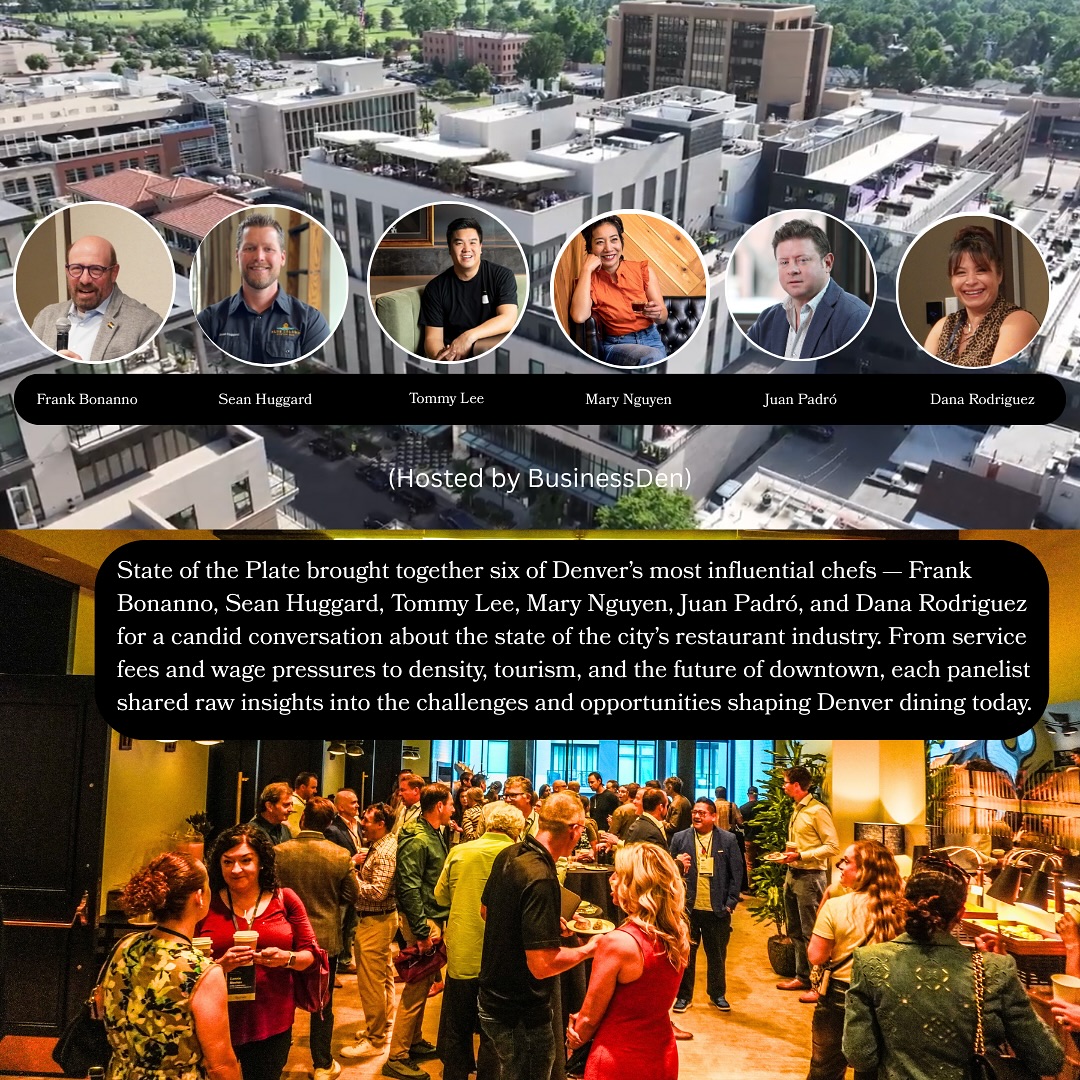
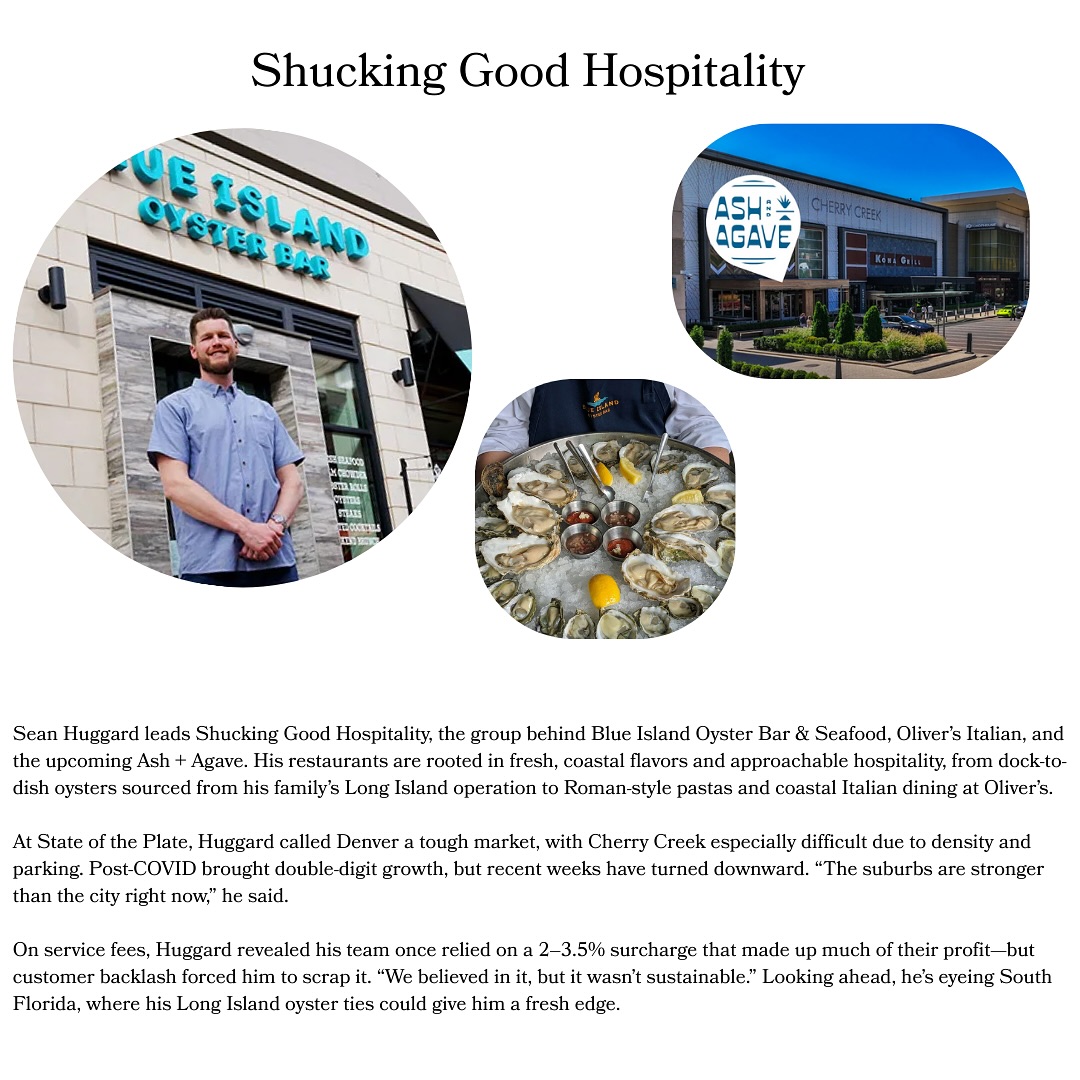
The panel laid out the reality. Denver has lost a third of its independent restaurants and, with workforce shortages, faces a 3,500-job deficit.
“Fragile but optimistic” is how Tommy Lee described the industry. Dana Rodriguez added that rising taxes, wages, and fewer diners are squeezing operators to the breaking point.
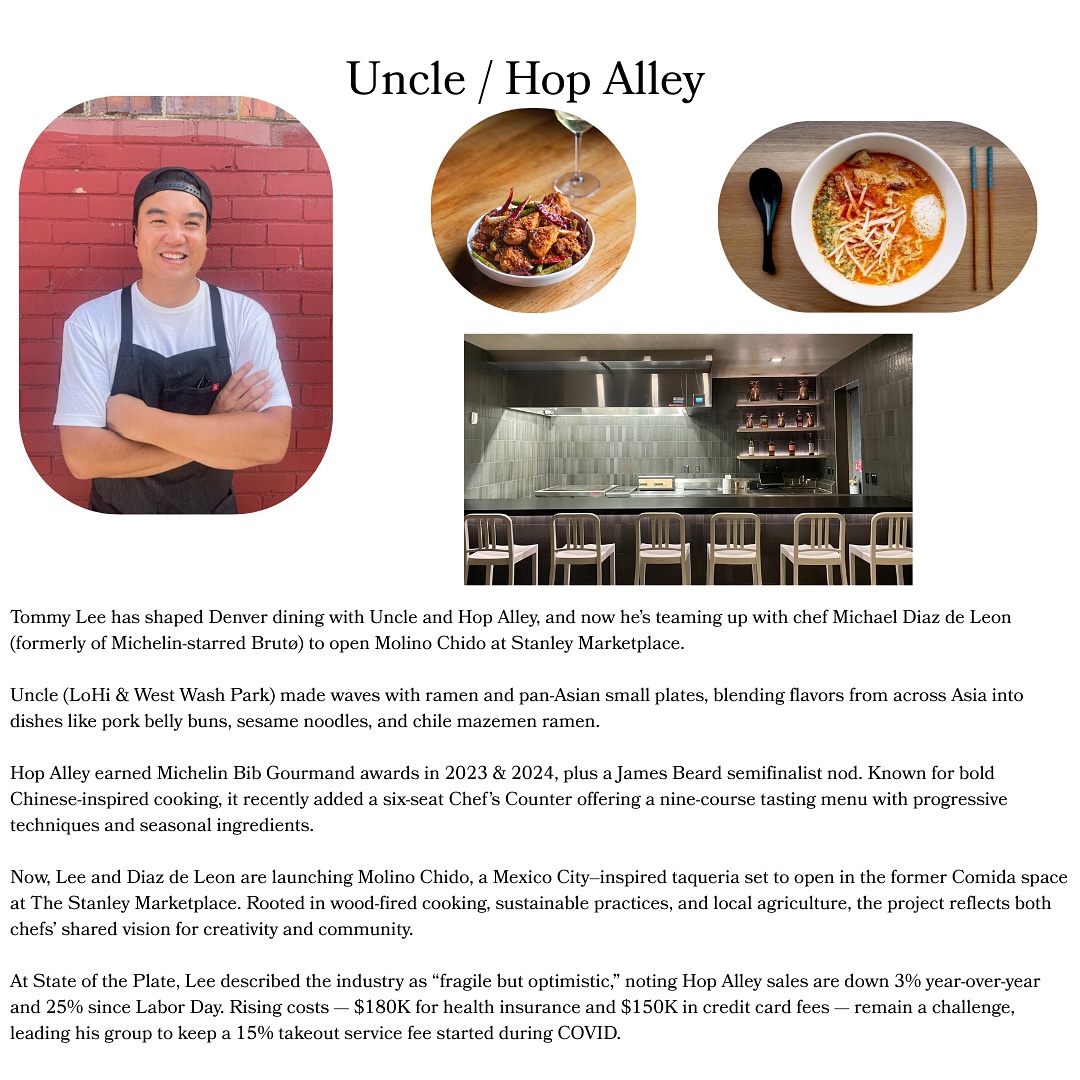
Cherry Creek is steady, but RiNo’s late-night scene is slowing, alcohol sales are down, and nonalcoholic demand is up. Tourism is still missing.
Mary Nguyen stressed density as the key driver, pointing to new residents as a restaurant’s best bet.
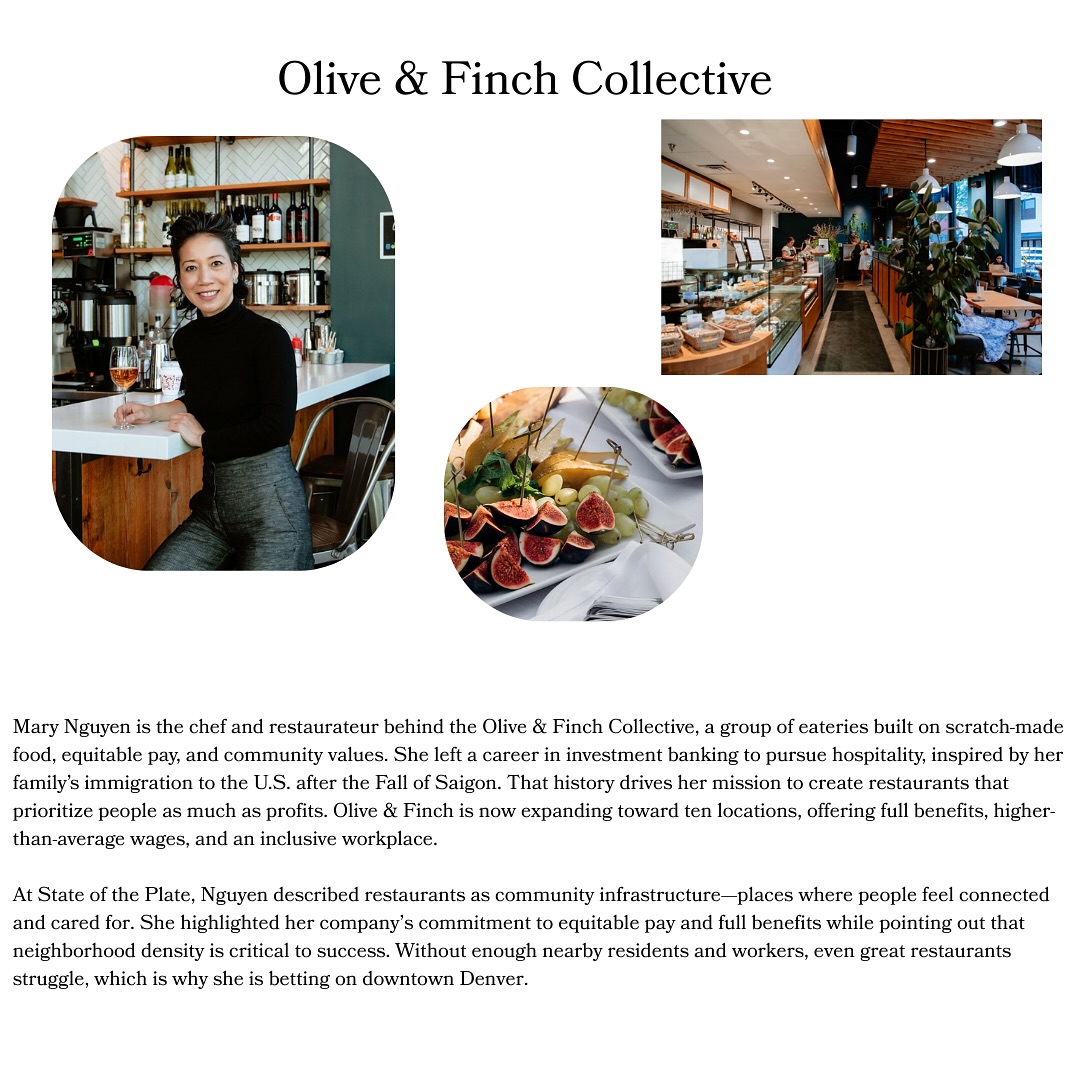
Labor costs were the hottest topic.
Frank Bonanno argued for reforming service charges and raising the tip credit ($3.02) to avoid closures like Portland and San Francisco.
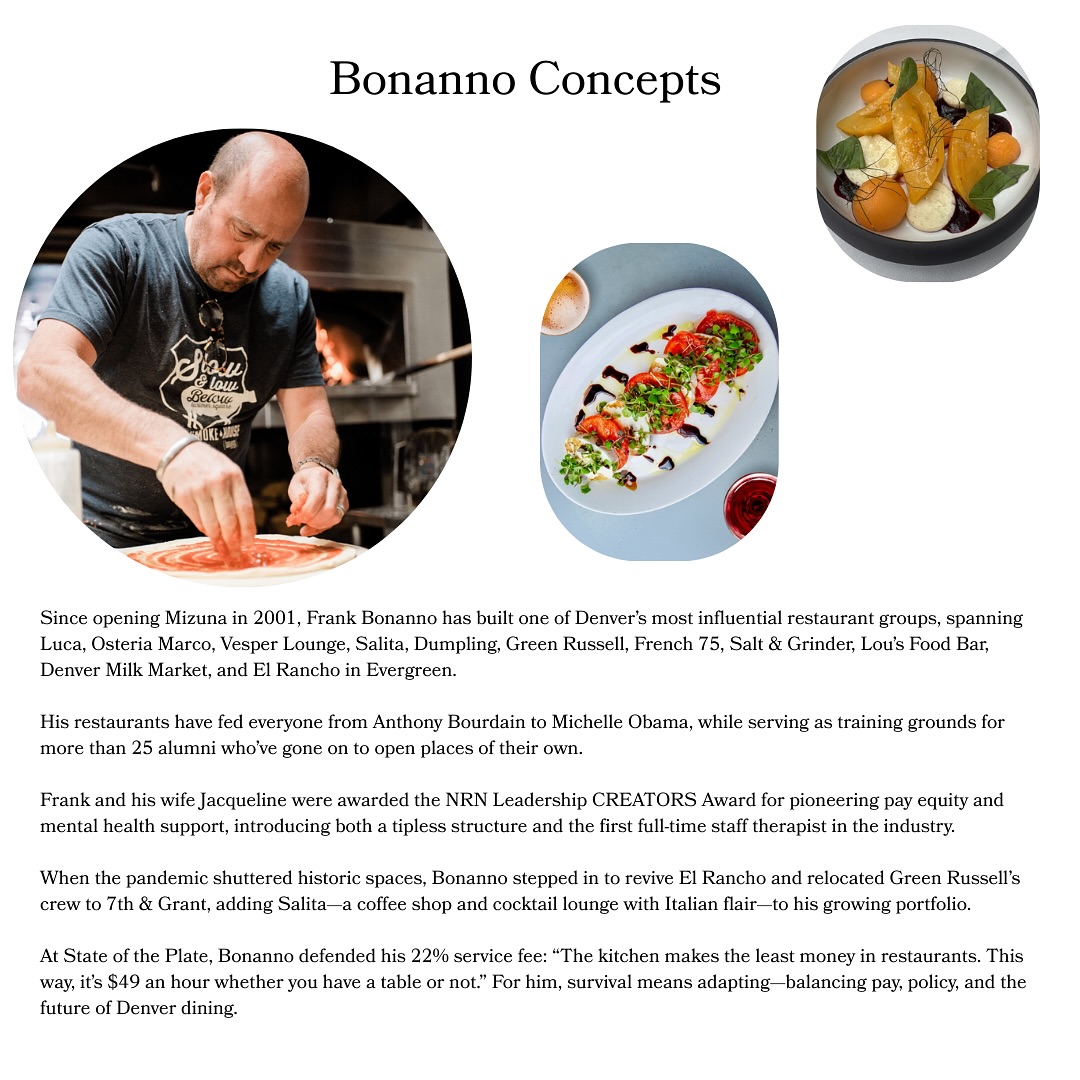
Juan Padró gave an example of a friends who owns steakhouses in Denver and Houston, where labor runs 18% of sales in HOU versus over 40% in Den, warning it will worsen without political engagement.
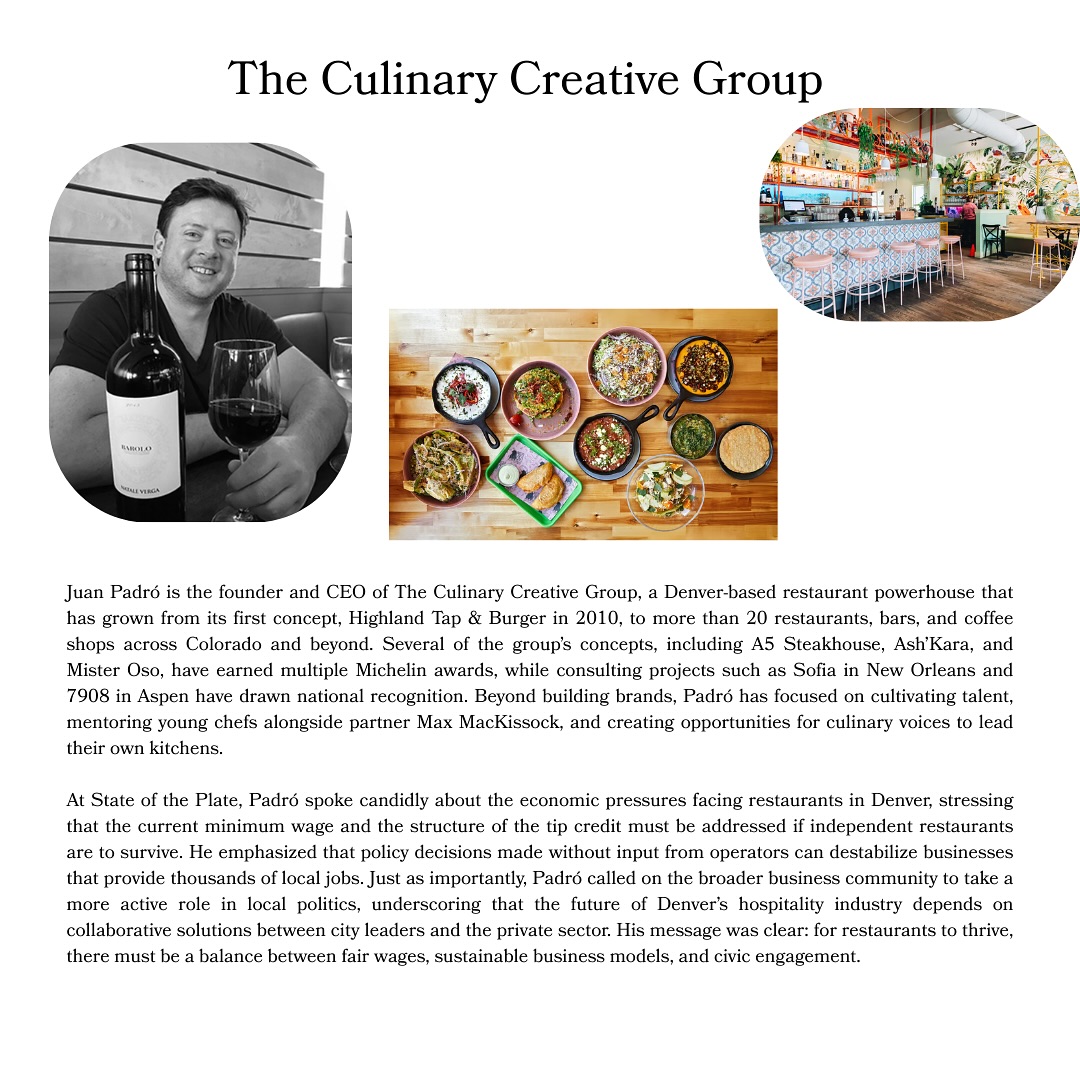
Tommy Lee noted other rising expenses from insurance to credit card fees.
Rodriguez explained why Work & Class 2 is opening in Englewood, faster permits, lower costs, and approval in just 13 days.
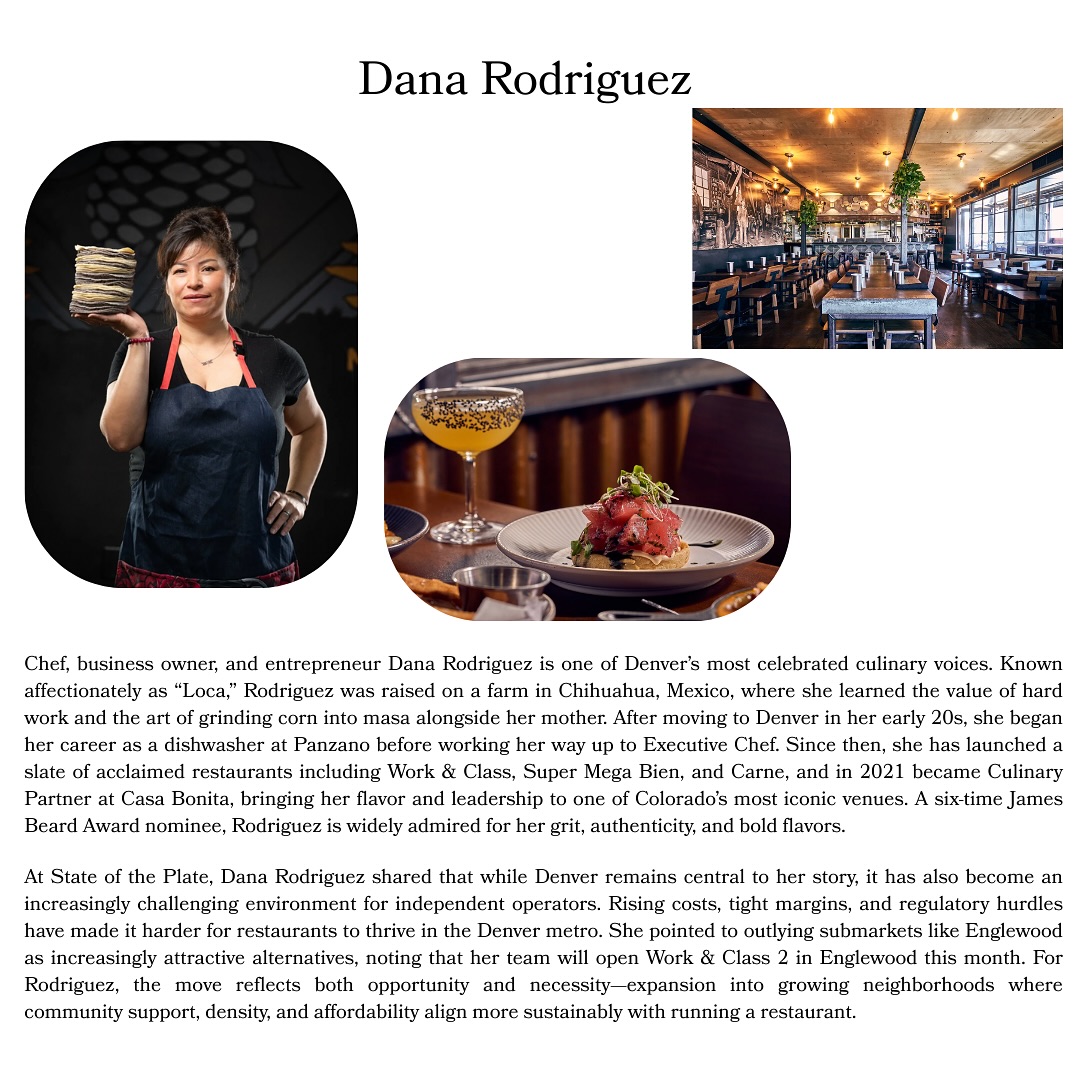
Despite the pain points, the panel ended with the hopeful sentiment that through resilience, creativity, and the belief that with density and realistic policies, Denver’s dining scene can thrive.
Long term, everyone agreed the US must adopt European models where payroll isn’t subsidized by tips or service fees if restaurants are to be sustainable.